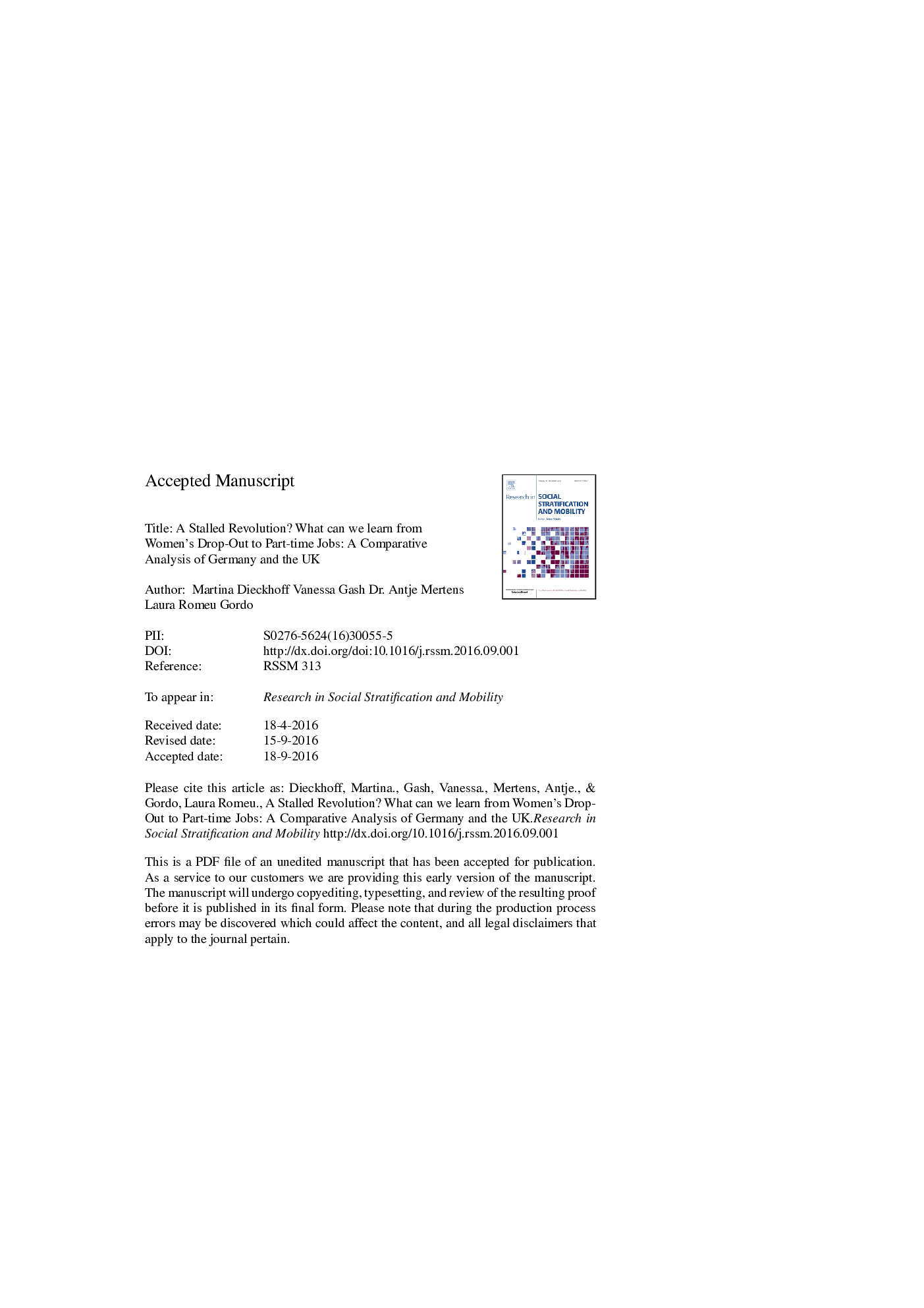| Article ID | Journal | Published Year | Pages | File Type |
|---|---|---|---|---|
| 5106614 | Research in Social Stratification and Mobility | 2016 | 36 Pages |
Abstract
This study examines how within-couple inequalities, that is power differences between men and women in a partnership, act as predictors of transitions from full-time to part-time employment applying Heckman corrected probit models in three different institutional and cultural contexts; Eastern Germany, Western Germany and the United Kingdom. The analyses show that when women are in a weaker position within their relationships they are more likely to drop-out of full-time work, but that this propensity varies by context. The authors also find an increased tendency over time for women to leave full-time for part-time employment in both Eastern and Western Germany, but observe no such trend in the UK. This is suggestive of ongoing incompatibilities in the institutional support for equality in dual-earning in Germany. The study uses longitudinal data covering the period 1992 until 2012 from the German Socio-Economic Panel (SOEP) for Germany and from the British Household Panel (BHPS) and the 'Understanding Society' data for the UK.
Related Topics
Social Sciences and Humanities
Economics, Econometrics and Finance
Economics, Econometrics and Finance (General)
Authors
Martina Dieckhoff, Vanessa Gash, Antje Mertens, Laura Romeu Gordo,
